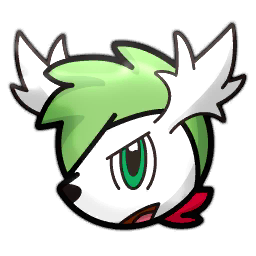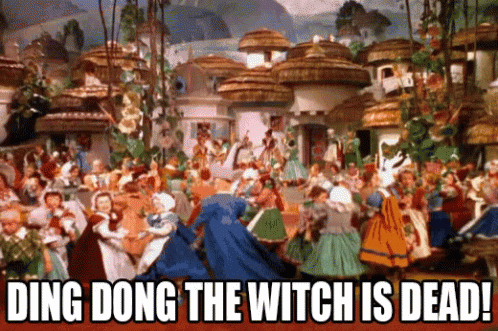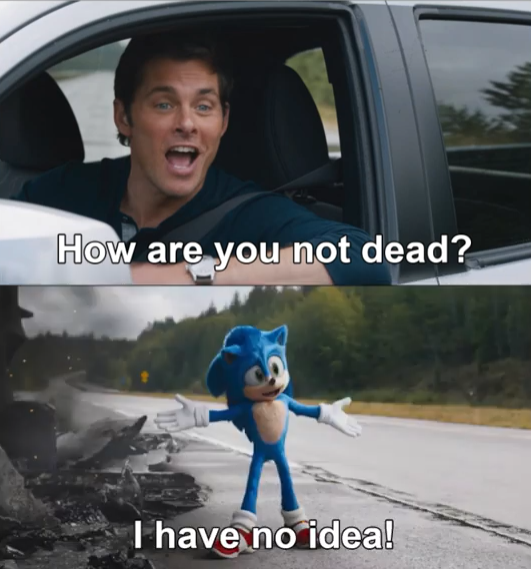kintsugi
try as I might I couldn't bring myself to hold you
mountains will never
※
“The mountains will never know one another, but people can encounter other people.”※
This is a story about Death.
cw: see summary
notes
This was written for the 2023 Oneshot [Legendary POV] Contest. Many thanks to the judges! I've made some slight prose edits since the contest; original version is here.
Feedback--open as always! Be advised that I'm reasonably happy with how this turned out and am not looking to overhaul anything major. However, this oneshot is adjacent to some other in-progress works, so I'll definitely keep things in mind!
Feedback--open as always! Be advised that I'm reasonably happy with how this turned out and am not looking to overhaul anything major. However, this oneshot is adjacent to some other in-progress works, so I'll definitely keep things in mind!
※
Her birth was inconsequential. Her rebirth was agony.
In that second-first moment that felt as long as a lifetime, she realized the secret: birth was normally gradual, a brain blossoming across days and years to catch up with the realizations it was making. Each new growing pain was worse than the last, but in turn each was overgrown by a tangling weave of budding synapses and fresh memories. That made it comprehensible. That made it bearable.
The second time, she flooded full-fledged into a body that didn’t fit, hands she no longer had still trying to staunch the fatal wound in her neck she no longer felt. The last vestiges of death faded from her, leaving her instead encircled by a grey garden of statues and shards of crystal. Her heartbeat rejuvenated a graveyard of neurons, and as the stone hackles of a manectric mid-scream caught the moon behind it, she began to remember. On this scarred battlefield, her life had been deemed forfeit to a war she’d stopped believing in. There had been something like a scream and then a pillar of bloodred light had streamed forth from the weapon and spli the sky. She had cast her eyes upward, resigned that Yveltal’s steely talons would pluck her into the next life.
But this is not that life, is it? a dusty voice rasped in the back of her head.
She had no time to question it, as the dry grass rustled. A thousand pairs of stony eyes were all fixed on her, but she realized with a start that she stood in the shadow of a god. Enough of her old life must have lingered, because her neck tilted into a low bow before Xerneas had even addressed her.
“We are kindred, Yveltal,” Xerneas said, in a puzzled, strained voice. The rainbow crown atop his head scattered moonlight as it tilted to the side. The muddy hoofprint trail in his wake was gouged deep and frantic, but even now each print bloomed slowly with snowdrops.
She felt strength flood into enormous wings she both remembered never and always having, and a cold wind stirred the black feathers of her crest. She straightened herself, taking care not to cut herself on the shards of crystal surrounding her, and struggled for an explanation. “I did not realize our paths often crossed.”
This time, Xerneas’s flinch was unmistakable. “You have my brother’s voice, and his duty. But not his words.” The god’s unblinking eyes were as blue as the sea, and speckled with starlight. “A human wrought great evil here. He fired a terrible weapon, and in doing so, took many lives, including that of the god who fueled it. I had hoped breaking the weapon would return my brother to life, but it appears I was mistaken. You are anew.”
After a long silence, she realized there was a response expected of her, one befitting the role that had flooded alongside her into this new life. She could feel purpose written in every fiber of Yveltal’s body. These steely talons, these all-encompassing wings, this dark plumage—this was the body of a creature who dealt death. With each new heartbeat that flooded through her chest, the sensations of her first life washed steadily downstream. She ached for them, but that ache sank deeper and deeper into her bones, out of her reach. “Then I accept my birthright.”
It appeared she had answered correctly. Xerneas turned away.
“I—I’m sorry,” she called after him. “No one deserved to die here.”
Xerneas inclined his head, and then continued walking.
You would steal the duty of a god? the rasping voice asked after Xerneas left. When it had spoken before, it had sounded so quiet and familiar that she had mistaken it for her own thoughts—but now its low, mocking chuckle echoed in her ears. Your audacity knows no bounds, little thief.
This was not a place for the living. She looked around for who else was left to speak. The scorched dirt was dotted with red crystal. Where the grass hadn’t been turned to ash, it had been sapped of life. And beyond that … a thousand dead faces looked back. Then the realization hit her.
“You were the one who stole his life,” she said to the weapon that had been both her grave and her cradle. And mine, she almost added.
Time on this world is passed between Life and Death, with mortals holding it in-between. When someone relinquishes a gift, do you call them robbed?
Relinquishes. That implied there was a choice. For an instant the new heartbeat subsided. Her back was tickled by dying grass as her blood began to grow cold. There was a horrible keening sound, the sky stained bloodred, and the dirt beneath her feet turned to ash in an instant. She was afraid, and in the face of the void opening up above her, she was alone.
Then she was here again, ringed by petrified pokémon and a broken weapon. “Call me a thief, then. But this duty will be mine. There is no one else.”
The voice hummed to itself—or to her, she was not sure. And then it said, You will take me with you. Pick up a shard. I am in any of them.
Yveltal looked at the crystals, each of which seemed to glow faintly red. “Why?”
Because you want to know your old life, and I can tell you.
She winced before she could stop herself, and that low chuckle hung in her ears again. In a voice that she carefully measured to betray none of her longing, she said, “I meant to ask why you would want to leave this place.”
There is a man who created me. I will see him bleed for it, said the ruins of the weapon.
Yveltal hesitated. “Do you think that will help anything?”
The crystals on the ground pulsed a low, angry red. You died on a battlefield. Do you think your hands are clean? Bring back the ones you fought and I will let you judge my claim to AZ’s wretched life. It paused. We can help one another, little thief. You wish to be Death and do not know how. I showed you once before how death is dealt, but this time I will make sure you are in a state to remember my lessons.
The casual efficiency of its words filled her with revulsion. “I will not kill the way you did.”
Yes, at this rate, you will not kill anyone at all. Will you greet them gently, and take them one-by-one into the next life, then?
Something in her throat settled. “Maybe I will,” she said stubbornly.
I will show you who to kill, then, if not how.
That made her pause. “You were not selective when you did this.”
That does not mean I do not know how to be. It seemed to reflect on something. More than that, I saw you in your first life. If you bring me to the human who made us, I will tell you who you were. Does that seem fair?
It did not seem fair. But a glance around the clearing told her that this was the most fair thing to be offered in this place in a long while.
Yveltal bent down and picked up the smallest shard, finding it dwarfed in her enormous talons. All at once, the rest of the weapon lost its remaining glow, and the piece she held pulsed a little brighter.
A wise choice.
Shakily, despite the anchor of a second chance weighing her down, Yveltal raised herself from the cradle of the weapon.
※
A taillow had once flown across the river, after promising her brother that she would return before the winter’s end. And, if not, he would find her by their song. There was a fight, she explained, and she could not live with herself if she did not join it. Winter ended, and with it, the war. Her brother remained alone. One day, a talonflame outstripped him, and that was that.
The shard recounted this to her, and pointed her in the taillow’s direction as he fell. Yveltal approached on silent wings, and hesitated.
Reach out, said the shard, almost encouragingly. It is his time.
“Will that kill him?” Yveltal hovered with one talon outstretched.
The talonflame saw to that. If you would rather he live long enough to feel his liver devoured, you can wait.
Yveltal steeled herself, and then wrapped her claws around the taillow’s limp body and yanked. A moment later he was flying beside her.
“It’s you!” he exclaimed, immediately dipping his wings in reverence. Then, when realizing that doing so no longer turned his flight towards the ground, he stopped in place, hanging uncomfortably in the sky. “Oh.”
Yveltal picked at the feathers of her chest, painfully aware that they hadn’t always been hers. “I’m sorry. Your time is up.”
“I had hoped I would at least see …” The taillow looked uncomfortable as well, but then, seized by a sudden burst of courage, asked, “Have you seen my sister?”
Yveltal glanced at the shard–which for a moment flashed a reflection of the sky above. She shoved down the feeling of revulsion that roiled inside of her chest. Anyone looking for her old self was back in the stone garden.
I did not claim her, it muttered, almost sounding guilty. Kalos is a large place. Stop prattling and move on. We have business.
The taillow had dipped a little closer to the ground, but waited patiently for her answer. It seemed that only Yveltal could hear the shard. It wouldn’t hurt, she decided, watching the rest of his flock circling the river at sunset, darting in and out of the reeds. “No. She endeavors to return here, but the sky is large.”
The taillow shuffled his wings and chirruped quietly to himself. “I knew it.”
Around the river, the flock had taken wing, as they did every evening, and soon the banks were alight with color and sound.
“Can I watch?” the taillow asked, in a voice that finally quavered. “Not forever. Just until they finish for the evening.”
That next night the flight would be one lesser. There would be the tiniest gap, between pumping wingbeats and the rustle of cattails, where another note was supposed to go. It would only be noticeable at certain turns of the light, when a cluster of taillow darted across the creek in a way that looked, for just a breath, asymmetric. And then, in two weeks’ time, the flock would receive one more, and the gap would close, even if it did not yet heal.
※
A trio of bunnelby watched with great interest as a human approached their warren in the middle of the night. They surveyed from various heights as he walked resolutely into the ashy scar where the war had ended, and emerged with an armful of broken red crystal. This process he repeated, over and over again, and finally he dragged the largest piece behind him. Under the watchful gaze of three pairs of beady eyes, he hacked the ground outside their warren apart. The arched silver line of his back threatened to cave in beneath the weariness mantled on his shoulders as he buried what he had brought.
When he was done, he traded his shovel for a bow and shot each of the bunnelby in turn—only the third one realized quickly enough, but her fear did not save her—and then turned back the way he came.
Yveltal swiftly gathered the bunnelby then. They were young, and all three of them fit together in her outstretched claws. A lurching pang of nostalgia for something she could not remember washed over her. Had she had siblings, once? Had—
“You are wise, Great One,” said the eldest, once introductions were made. “Could you tell me what we did wrong? The war was over.”
Yveltal had no response for that.
Is it not obvious? Now he alone holds the secret. The shard had been quiet this entire time, pulsing dimly while the rest of the weapon was buried. It did not say anything else.
“Come,” Yveltal said at last to the bunnelby. “This is an ugly place. I know a better one.”
※
The executioner’s axe gleamed in the sunlight. A crowd had gathered in the palace’s grounds, and uneasy tension roiled through the air alongside the summer heat. Three times the deacon asked Prince Byron the Younger where he had hidden his brother’s weapon, and three times he refused. So they steadied him up the steps and pulled a coarse bag over his head. Someone in the crowd cried out for him. For a moment, the jeers fell silent, and his shoulders strained against the rope. Then the axe came down.
With that done, Byron took a step away from the crowd, where it was quieter, and saw Yveltal waiting for him. His lips set into a thin line.
Ask him where he put his brother, Azrael, the usurper prince. Ask him and we can end this all.
But Yveltal hesitated, or Prince Byron spoke first. “Will they … ” he began, not daring to look Yveltal in the eye. Instead, he swallowed, and kept his eyes firmly fixed on the cheering crowd. “Will you forgive our family one day?”
His brother killed a god, snarled the shard. Their bloodline will be forgiven when the seas boil into the sky and this world is no more. But tell this one he can start his penance a century early if he shows you where he has hidden the god-murderer.
Yveltal curled the shard away in her talons. “AZ’s war killed more than a god.”
Of course you would fixate on trivialities.
It wasn’t until Prince Byron said, “That it did,” that she realized she’d spoken aloud. Across from them, the prince’s headless corpse was being bundled limply into a cart. Byron watched it dully. “I was too late to stop the first war, but will my actions forestall a second?”
Yveltal stood by him, the grey feathers mantling her neck shivering in an unseen breeze. “Is there something else you would rather see before you go?” The gentleness in her voice startled even her.
Far from the palace was an oak tree, its branches spread wide against the horizon. A swing just large enough for two princelings was tethered to its canopy. Byron stood beside it, formless fingers curled around the dangling rope. The seat had been bleached nearly white from the sun, and the sheaves of grass around it had almost grown tall enough to swallow it entirely. Fireworks crackled across the skyline, so far away that they might’ve been shooting stars.
※
A nameless urchin had made a name for herself, starting with a string of petty thefts. Soon she was thieving from dukes. Some would say her crew’s goals had been noble, but as the years passed it became harder and harder to tell who was rich, who was poor, and who deserved what. Surviving the double-crosses and the skirmishes had been the easy parts, surprisingly enough. A fever took her quickly in the night just a few days after the war ended.
The human looked at her hands, and then down at the tucked-in body. “I never thought I’d get a peaceful death. I thought for sure I was a goner at Marseine Pass.”
Yveltal reached into the mercenary’s memories and saw. Death had been there, for three others, alongside the cloud of arrows darkening the sky. “It wasn’t your time.”
“How about that incident in the Rimelands?”
Her band had lit a hostel on fire as a distraction, and she had almost been caught up in the blaze. Death had been there too. “It wasn’t then, either.”
She will be like this until the end of time, the shard hissed, irritated, until you silence her. Unless … Then it began to chuckle. Are you trying on her life, little thief, to see if it fits the sensations of your old one? Is that why they interest you so?
“Crazy.” The mercenary was saying, and made a move as if to light a pipe, and found she had none. “So what now?”
There had been rumors of a vast treasure buried at the fork in a river, beneath a crooked tree. Jewels, gold–what it contained depended on who was asked–the last hurrah of a different master thief, but the location of his treasure had died with him, so naturally an inquisitive mind had to see for herself. Burdened by form no longer, the mercenary sank into the mud while Yveltal waited by the banks.
“It’s gone,” said the mercenary when she returned.
“Do you think it was ever there?” Yveltal couldn’t help but ask.
The mercenary looked at her with raised eyebrows. “You don’t know?”
Yveltal spread her wings wide. “The treasure didn’t live. Just the man.”
※
A river wound through the mountainside, surging with snowmelt. A human boy darted across the rocks, his hair carefully plaited with daffodils and his pants muddy. He whistled a breezy tune and played a game whose rules only he knew. In twenty years he might’ve held his newborn daughter in trembling hands. In fifteen he might’ve performed an aria that would bring a king to tears. In five he might’ve stood, starstruck, as a traveling minstrel recounted a ballad of a war he’d been too young to understand, and he might’ve realized he wanted a life beyond this river.
Today he slipped too close to the undertow, and Yveltal swooped in after him.
“Thank you for saving me,” the boy said politely as they stood on the riverbank, watching the water roar past them. The winged figure dwarfed him, and he tilted his neck as high as he could to look Yveltal in the eye. “You don’t look like you’re from around here. Are you from Lumiose?”
She looked away, and for a moment answered as a mortal. “Not quite.”
Undeterred, the boy continued, “Do you know about the palace on the hill? Mama told me stories about it. Have you been?”
Yveltal crouched down. “I can take you there.”
The palace walls, with its captive fountains and hedge mazes, held endless delights for a child who had only ever known a single village. His eyes were as wide as saucers as they beheld the wondrous paintings lining the walls, the gleaming polished silverware, the impossibly tall and pale staircase. With burbling giggles that no one else heard, he dashed through a hallway made entirely of mirrors, his sandal-clad feet slipping on the tile floor. At the end of a long day, exhausted, he curled up in an endlessly soft bed, and dreamed of another adventure.
You’re wondering if you were like him, once, aren’t you? the shard asked as they took the sleeping boy out of the palace. You want to give him the gentle death that you denied yourself.
“Is that wrong?” It wasn’t worth lying.
Which part? the shard asked darkly. You chose the battlefield.
Yveltal had been with the shard long enough to know that this was a question that was meant to sting, not to be answered. Still, she opened her beak to retort, then stopped.
What?
“There is only one place AZ would be.”
※
There was once a king who loved a pokémon. When he started a war he could not finish, his pokémon traveled to the front lines for him, and perished there. It was only then that the king understood the blood price upon which his castle was built.
Both Yveltal and the shard knew the rest of this story.
This time, surveying the disaster from above, it was impossible not to notice the scale. Even on her wings the miles of destruction stretched long. She’d always known that while one man had done this, it would take much more than one man to put it back together again. Weaving through the abandoned trappings of war, the still-pitched tents and spiraling rows of battle lines, she finally began to wonder how long a wound like this would take to mend. The last of the cooking fires still smoldered. In a few months, the footprints would wash away. In a hundred years, the fabrics would decay. As for the stones, she could not say.
In the aftermath, the man named AZ was a miserable creature. Yveltal found him where it all began, in the crater where the weapon once lived. From above she could see the broken spears around it, the faint tracks of Byron’s passage to the west. AZ’s shambling footprints wandered aimlessly through the rows of stone statues, but now he knelt in the epicenter of his disaster, crazen eyes darting to and fro. He did not react when she approached, but by now she could recognize the bearing of someone who waited for Death.
Yveltal had, in secret moments, imagined what ripping the life from his body would feel like. It was a desire that felt distinctly mortal. This body’s enormous talons had been one of the first things she’d noticed, but they were not sharp. They were made to hold, not tear. But if there was a reason the person in this body wanted to draw blood, this man was it.
She alighted in the dead grass nearby, and hesitated. A pit of dread sank in her stomach. The dying could always sense her overhead. He looked like one beyond living, but–
“It is not his time.”
You can decide otherwise, can you not?
“I can’t,” she whispered. Yveltal knew as soon as she said it: even with all the eyes of the damned on her, if she tried to reap this pathetic man here, she would not survive the experience, and he would keep walking. Admitting it felt like a failure to every casualty of this war.
The shard was practically humming in her talons. Look around you. This man killed a god. His hubris upended your world for the rest of time. You would let him live?
She could feel the menhirs’ eyes on her now, and knew that somewhere in the stone statues there was one for her. Was it disappointed? “Death comes to all, whether they deserve it or not,” Yveltal said at last, her talons curling inward. “Life holds domain over punishment. My judgment is meaningless here. It is not his time.”
You stole the trappings of a god, but you are afraid to wield them. You have power now, little thief. What need do you have for excuses?
This time, Yveltal did not flinch. “I have done what you asked. He is here. Do what you will.”
The shard did nothing. AZ did nothing.
Yveltal flew along the trail of snowdrops Xerneas had left the day the war ended, and landed to the west, in a deserted bunnelby warren that unwittingly marked the weapon’s true grave. She looked down and tried not to betray the thought of a new-old heartbeat in her chest, thumping faster than she dared believe. “Well?”
Fine. You have fulfilled your side of the bargain. Now for mine: I know nothing about who you were.
A low keen of surprise ripped from her mouth. “What do you mean?”
I lied to you, said the shard, its words devoid of mirth. What part of that is so hard to understand? I surveyed thousands of lives without seeing, and I took all of them. I did not, and do not, care what kind of life you lived. I looked over at the destruction I was about to bring, and I felt nothing. Do you see it now, child? That was the moment you were born.
Yveltal looked around, and did not see. “But you were just the weapon. Why would it matter how you felt? Why would ...”
Her gaze caught on the shard in her talons—how, in certain turns of the light, she could see one blue eye staring back at her, twisted and distorted.
Will you bow to me as you did to my brother, after he broke me? chuckled the voice from the shard, as dry as bone.
“You’re the old Yveltal,” she said hollowly.
I did say I had killed you once before. And I do stand by my offer to try a second time.
“But you didn’t kill me. You weren’t there.” Yveltal struggled to find the words. Her life had ended, but there had been no one else at the end. How could she convey that void to him? What would an immortal fear about the end? What would an immortal fear at all? “No one was there.”
There was a scar on the world, and two carrion surveyed each other from across it.
And? snarled the old Yveltal. Tell me, little thief, do you think any of those dying felt warmth in our touch? Compassion only means something if it comes from someone who understands. There is a mountain at the end of the world. Its peak watched over all of creation. When it looks down on you, what do you think it sees? Do you think anyone on this planet is capable of pitying it?
At his words, she could picture the mountain, its tip shrouded by clouds, sternly grey on most days and sun-touched on a precious few. Thousands of years ago, when Life and Death had first been born on its slopes, the sky had been as blue as their eyes.
The clearing was silent for a long time.
Finally, the shard spoke again. We may not see eye to eye on many things, but I trust we can agree on this. AZ’s mess has ruined us. We can go back to him, and together—
Yveltal dropped the shard into the pit with the rest.
※
By the end of the war, the forest saw many of its ancients fall. Deep in the heartwood was a sycamore that had watched the centuries go by, and that could do nothing but watch when footsoldiers sawed away at its trunk. Eventually the tree split and fell, but when the soldiers rolled away with their lumber, the tree lived on, sap beading on its wounds as it lay splayed across the forest. For the first time in decades its canopy met the undergrowth; empty fletchinder nests gave way to rattata burrows. Its leaves fell off one by one. Clusters of chestnut mushrooms grew in the snapped-off caverns of its stump, quickly followed by a thick carpet of lichen. Part of it died, and was split into arrows and shields and barricades. Part of it lived to watch the rings that marked its age splinter away in the wind. The rest of the forest grew slowly and imperceptibly onward.
Only in winter, when frost settled on the scarred split of its trunk, did Yveltal finally come for it.
Trees had a quiet sort of language, one that she learned to wait for. They spoke to one another through gentle hums that traversed the deepsoil, vibrations as roots gradually split rocks, the soft swaying of leaves in the wind. But Yveltal was a creature of the sky, and time had stripped this tree of its voices. The last words took time, but she was ever-patient.
“It takes a very long time for my kind to change,” said the tree, very slowly, as its body became a nursery of decay. “I am grateful you waited.”
Yveltal knelt before the tree, and asked the same question she always did.
“Anywhere I would like to go?” the tree repeated. It mulled its response for a long while.
Forests had stories about the ocean, but they never talked about how flat it was, how lonely. It must’ve been a lake that had grown too large, or a river that had learned how to run in place. Eventually, the tree and Yveltal left, and the waves crashed on.
※
A herd of aggron had wandered across the plateau after the war. They trudged in thick, armored formation, pups in the center, a trail of glinting silvery lights across the menhirs. They halted when they reached the middle of the field, and turned westward, horns pointed as if guided by some central compass to where the weapon had been taken. They walked to an abandoned warren and, with claws the size of swords, sank the scar deeper into the earth. With exacting care they gathered boulders from across the plains and dragged them to bar the entrance. When spring came, satisfied with their work, they moved onward to find the wake of a new disaster.
One lairon stayed behind, to guard the secret, though his kind was not meant for the wintry rains. He was stoic as rust took him.
“We barred the way for others, but for you it will always be here,” he explained when Yveltal landed next to him.
It was a kind gesture, Yveltal reflected, even if it was unwanted. “Thank you.”
“If you’re going to destroy the weapon …” One of the lairon’s clawed feet stamped nervously in the ground that no longer quaked beneath him. “May I come with you?”
“I cannot destroy it,” said Yveltal. “But you may come see it.”
They descended through the earth into the scar’s heart. Tunneled deep underground, surrounded by withered roots that only desiccated, not decayed, the weapon waited. It was inert, and dark, but she knew immediately when they had reached it. The lairon did as well, and paced around the cavern solemnly. After examining each stone wall, he looked up with a satisfied snort, and asked to be on his way.
※
Dawn fell across a hibernating meadow. The grasses slumbered safely, retreating into their roots while morning fog tipped their blades with dew. A florges had protected this valley for ten-and-one centuries, and a weariness had settled deep into her bones. When one of her floette evolved, she greeted another florges for the first time since her own evolution, and she looked to the sky for her end. The night before she had watched motes of pollen hang in the golden hour, and she knew as she ushered the blooming flabébé into the sunset that she would not live long enough to see them return.
She greeted Yveltal like a familiar friend. The old ones often did.
“Will my children be safe?”
Yveltal, too, had watched the sunset procession. She had visited this meadow several times this year already, when the sun was too harsh or the newly-hatched spewpa sated themselves. “No,” Yveltal replied solemnly. She could comfort, but she could not lie. “But they will know joy.”
“That’s good,” the florges murmured. She straightened herself up, finding that her body no longer ached as it had before, and she offered her hand. Perhaps she did not know that this Death was different. Perhaps she had nowhere she wanted to see more than this. “Thank you.”
※
Finally, Yveltal returned to her cradle. On the way, she stopped to visit the solemn menhirs. One of these stones must’ve been hers, she knew. But, in a sense, they were all hers. She descended into the earth, where someone waited for her in the husk of the ultimate weapon.
The crystal in the center of the cavern pulsed with red light, but the voice that came out radiated weary resentment. Go back to your toys, little thief.
“You were the one who told me that mortals are merely returning a gift to Death. I took nothing that you did not give.”
A long silence told her that her words had struck truer than she had intended.
You have our duty, child, said the bone-dry voice at last. There is nothing more you can do here.
Perhaps this was what AZ had whispered to himself before turning the key to his weapon and unleashing ruin. Perhaps it had made him feel better to think that his calloused, ash-stained hands were always meant for this purpose, that every choice he’d made along this road meant nothing because the path always led here, with the same inevitability that an acorn became an oak.
“You knew you wouldn’t come back the same, even if Xerneas broke the weapon.” It sounded much too close to an accusation, but Yveltal did not know how to soften those words.
I was not lying when I said I knew nothing about you. You were neither my intention nor my choice. AZ, wretched though he is, could not kill a god. Except … It fell silent for a long moment. I hated him. I had never hated before. As I waited for my freedom I plotted how I would bend my own rules to reap him, though it was not yet his time. Only when my brother raised his hoof to smash my cage, did I remember that Life will not exist long in this world if Death cannot love the dying. I gave you nothing. I merely let go.
She was struck by a memory she knew she never lived, of a god who had been tasked from birth with the loneliest domain. For thousands of years, his name meant dread. So when one day a king sought him out personally, promising to welcome the god rather than banish him, the god could not help but draw near. The god was hopeful that this time would be different, and he held this hope all the way up until the king’s weapon tore him in two. In the aftermath, the god’s anger seethed and roiled. He cast it into the parched earth, and his heart rooted itself into thorny knots, waiting for the day that rain would come to quench his hatred, and he could finally sprout into something more beautiful than what he had buried.
“There is a mountain at the end of the world. Its peak watched all of creation.” Yveltal bowed her head closer to the cradle. In its crystal facets she could still see her reflection, twisted and thrown about. One blue eye stared back at her. “Would you like to see it again?”
The voice was soft when it rasped, Not all seeds become trees, do they?
It wasn’t a question he asked for an answer, but Yveltal was no stranger to those, and neither was the shard. Maybe, if the soil had been different, there could’ve been a place for both of them. She thought of an immortal who became a tool, an army that became a garden, a footsoldier who became a god. Sometimes the choice to change didn’t feel like one.
“No. Not all.”
Autumn had turned the poplars outside to a tapestry of red and gold. Pale ribbons of clouds streaked above a garden of stone. A glassy river carved through the foothills, darkening briefly as a shadow passed overhead on silent wings. A day unfurled around them, and the world paused for just a moment to watch as the new Yveltal flew the old to the horizon.
※
Last edited:


























